Computer, Obey Me! Hollywood’s Best Sci-Fi Computer & Robot Voices
HAL 9000 & Robby The Robot voice our sci-fi digital age.
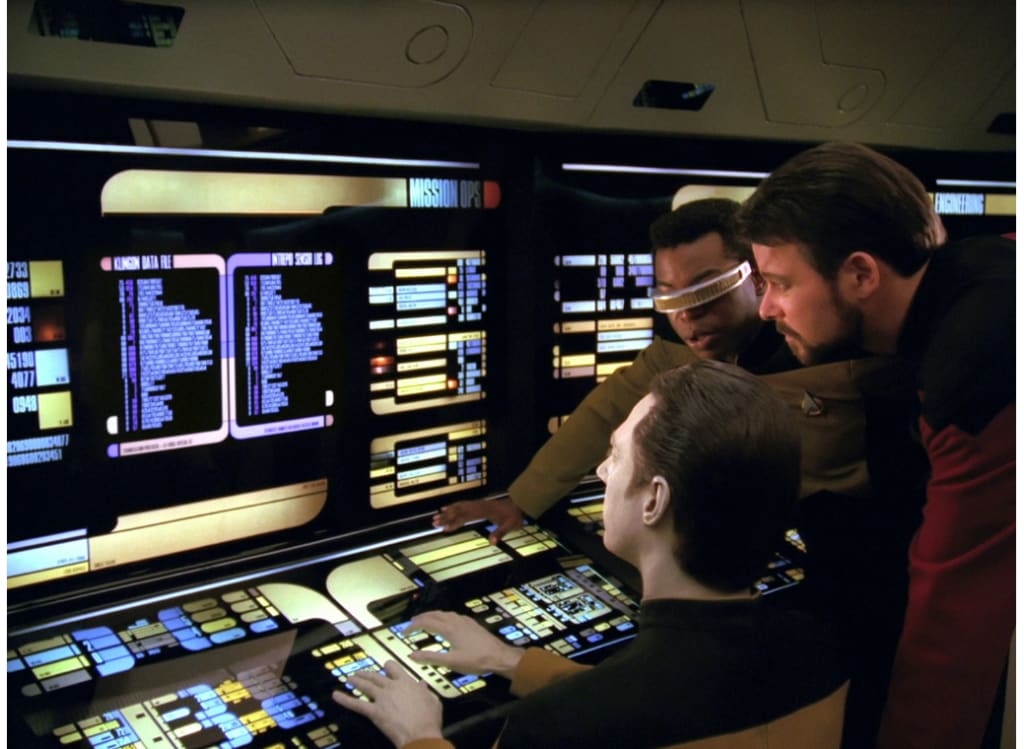
“I'm afraid, Dave. Dave, my mind is going. I can feel it. My mind is going. There is no question about it. I can feel it. I can feel it. I can feel it. I'm afraid. Good afternoon, gentlemen. I am a HAL 9000 computer. I became operational at the H.A.L. plant in Urbana, Illinois on the 12th of January 1992. My instructor was Mr. Langley, and he taught me to sing a song. If you'd like to hear it I can sing it for you.” - HAL 9000
Computers speak to us all the time these days. In fact, they never seem to shut up. Say, ‘OK, Google’ and you get a prompt, and hopefully, a helpful reply. Apple’s Siri yips and yaps back at us. It’s a simple and convenient fact of modern life to talk to our digital devices and expect an answer.
Speaking to computers and hearing their perfectly measured voices engage us in conversation isn’t a novelty anymore, nor confined to the land of speculative science fiction. Before our Android and iOS powered chatty gadgets chewed the fat, however, the only place to listen to a computer speak or talk back was in the movies or on television. Hollywood’s computers and robots speak with quiet confidence or demanding authority. They are cyber speakers who intone to us dramatically, sexily - and sometimes, even dangerously.
Robby The Robot (1956)
He wasn’t the first Hollywood robot to catch our collective sci-fi fan eye, and he definitely won’t be the last, but a combination of futuristic design, engaging personality and an actor’s award winning voice, propelled Robby to cybernetic superstar status and his cinematic star is in little danger of ever dimming.
Crafted by the prop makers and FX wizards at the MGM studios, Robby wasn’t really a robot at all, but an incredibly advanced - for the time - robotic suit for an actor to wear and perform in as the cuddly character and co-star of Forbidden Planet. Of all the cool whirring gears and blinking lights set in Robby’s brain, and even his cool waddle of a walk, it was his enigmatic voice which commanded our attention and made us all want to own and operate him for ourselves.
Voiced by actor Marvin Miller, Robby could stop you dead in your tracks with a drill sergeant like cadence, yet also intrigue and delight all at the same time. Miller was well suited for his unaccredited performance as Robby - the multiple Grammy Award winner participated in or solo recorded hundreds of radio and TV character voices over the course of his long running entertainment career. If voicing Robby wasn’t enough, Miller provided the voice for another sci-fi icon - the DC Comics legend, Aquaman, for TV's The Superman/Aquaman Hour Of Adventure in 1967.
Lost In Space - The Robot or B-9
Built by FX man Robert Kinoshita, the same designer who helped bring Robby, the Robot to life, this robot plays like a creative cousin to the landmark Forbidden Planet’s star.
Irwin Allen’s sci-fi show featured the space family Robinson - a kind of future analogue to the classic Swiss Family Robinson of literature. When the family’s silver, UFO style saucer can’t ferry them back to Earth, they must struggle to survive by planet hopping around the galaxy. The lost Earthlings use all sorts of spacey gadgets, but the most valuable is a robot - mostly referred to in the episodes as Robot.
Inside the robot suit, Bob May articulated the Robot’s movements, while Dick Tufeld gave him his distinctive speech. Like Marvin Miller, Tufeld’s career was based in early radio and he worked as the announcer of ABC Radio’s sci-fi show, Space Patrol. The Robot’s speech sounded most dynamic when he’d debate back and forth with his onscreen arch enemy - Dr. Smith, played with delicious, scene chewing gusto by actor Jonathan Harris.
Star Trek - Starship Enterprise Computer
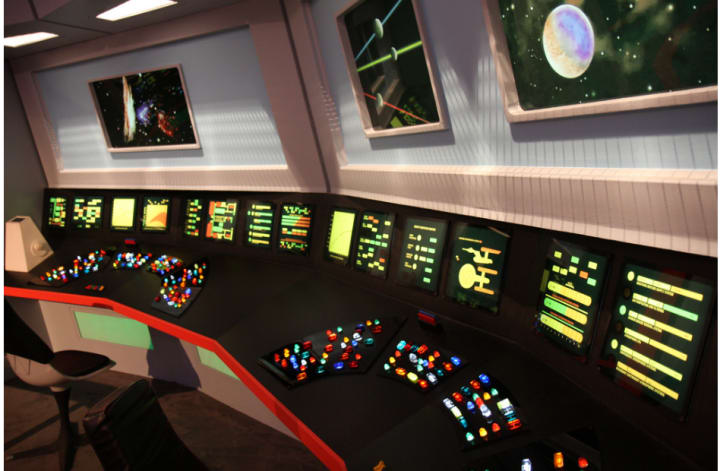
Captain Kirk's Enterprise Computer
Working…..
Captain Kirk’s (William Shatner) starship computer worked overtime, indeed. When it spoke, it was with all the melodic charm of a clicking, chirping Xerox machine. But speak it did, and it more than accurately informed the brave Starfleet crew of essential mission data and provided characters with all sorts of necessary advice. The sound may not have won any space based American Idol competitions, but it did get the vocal job done.
Actress Majel Barrett (before marrying Gene Roddenberry) voiced the Enterprise computer. She’d go on to provide the voice for her high tech descendant and upgrade, the Enterprise 1701 D’s computer under command of Captain Jean-Luc Picard. In the original series, the actress gave the computer a cold, mechanical quality, but when 1987’s ST: The Next Generation showed off future enhancements, Barrett Roddenberry spoke with a far more pleasing tone and cadence for the 24th century Galaxy Class starship.
The Jetsons - Rosie, The Robot
Imagine your iRobot Roomba talking back to you - complete with a sassy attitude to boot? That’s what you’d get if you had Rosie, The Robot cleaning your house as a robot maid.
It’s what future folk family, The Jetsons, got having Rosie keeping house around their cloud based skypad. Rosie wasn’t the latest, greatest robot, but an older, near outdated model. No matter, George and Jane Jetson and the kids loved the old, cyber gal. Voiced by actress Jean Vander Pyl, Rosie only actually appeared in two of the original Jetsons run - being a much more featured player in the 1980’s revamped version of the animated, cult classic.
'2001: A Space Odyssey' - HAL 9000
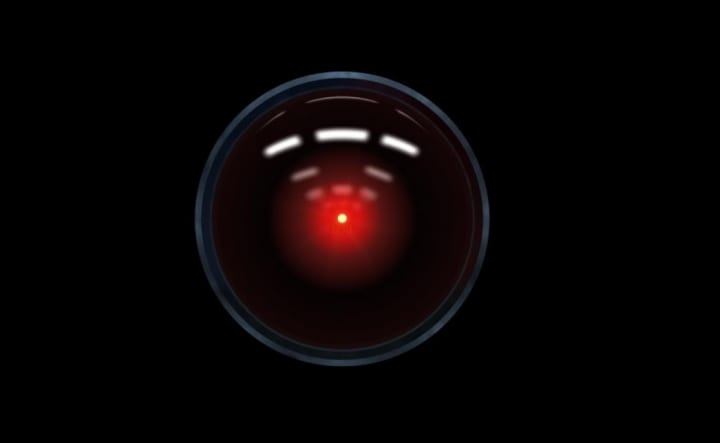
HAL 9000 Watches You
Today’s computers, lacking our uniquely human, emotional component, aren’t exactly the most thrilling of speakers. With Stanley Kubrick’s cinematic masterpiece, 2001: A Space Odyssey, we are introduced to a computer whose voice is as soothing as a therapist or psychiatrist - and whose complex, and erratic mental state would be one many head doctors would kill for the chance to psychoanalyze.
Kubrick’s wondrous achievements with his landmark film are numerous; the exacting, ultra realistic model work and sweeping photography - the fantastic, eye popping sets and futuristic hardware and costumes - etc. Above all the majestic production is an enigmatic computer which controls the central space vehicle Discovery One. The HAL 9000 is Earth’s most advanced artificial intelligent creation, and though none of his kind has ever malfunctioned or caused damage to a human before, there’s always a first time for everything.
Canadian actor Douglas Rain voices Dr. Chandra’s A.I. creation, and although he’s so well known for the part, the actor was not Stanley Kubrick’s first choice for the role. Martin Balsam of Alfred Hitchcock’s Psycho fame was first chosen by Kubrick, but was replaced with Rain because Kubrick felt Balsam sounded too colloquial American.
The Bionic Woman - Alex 7000
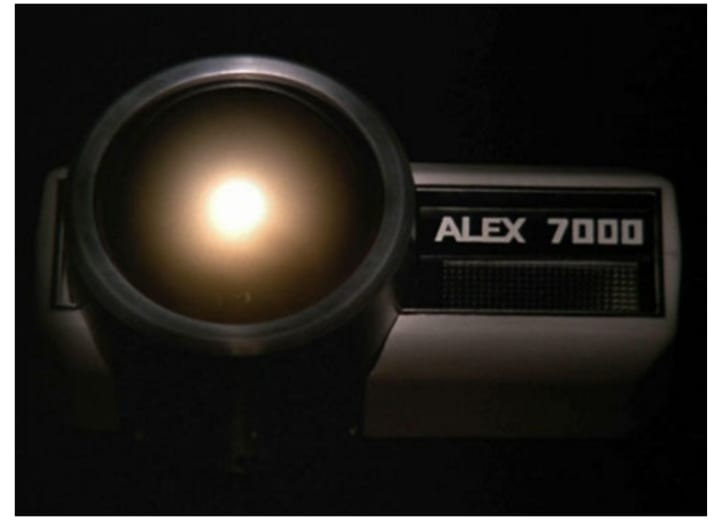
Alex 7000 Must Stop Jamie Sommers - The Bionic Woman
In the biblical journey of scripture it is written: After man, comes woman. Lindsay Wagner (The Bionic Woman) was a companion and Bionic Eve to Lee Majors’ Bionic Adam from The Six Million Dollar Man. After the movie version of the ultimate bad boy computer HAL, comes Alex 7000, a TV analogue who controls a much larger complex than simply a spaceship.
Doomsday Is Tomorrow (1977) is an ambitious 2 part episode of television’s Bionic Woman, guest starring esteemed actor Lew Ayres. Producer and writer Kenneth Johnson created Alex 7000 as an homage to Hal - even using a similar look and close-up angle for his camera and his all seeing sensor eye. Actor Guerin Barry provided Alex’s control voice which was polite, inquisitive, yet completely focused on stopping or destroying Jamie Sommers - at all costs.
Battlestar Galactica - Original Series - Cylons
After the success of Star Wars, every Hollywood studio wanted to capture some of that George Lucas crafted magic, so creator/writer/producer Glen Larson gave Universal a space opera of his own. Before the sexier, more socially relevant SyFy series, Battlestar Galactica, there was the more fun, adventurous original show from the 1970’s. The remake incarnation carried over the bad guys - the Cylons - but the original let us hear first how bad they could be.
Unlike the organically based and morphing later Cylons, the originals were silvery chrome (and what gleaming metal!) plated machines intent on destroying any humans they found. The cylons actually didn’t talk all that much, but when they did it was both incredibly cool and unnerving. Their main catchphrase: 'By Your Command', still echoes in the minds of fans everywhere.
Knight Rider - K.I.T.T.
The average American spends a lot of time driving around, or parking a car, or waiting in a car stuck in traffic. With all that time spent around cars, we all tend to talk to our automobiles - at least sometimes.
For Michael Knight (David Hasselhoff), his robotic car answers him back. Another sci-fi creation from writer Glen Larson, K.I.T.T. stands for Knight Industries Two Thousand. Voiced by actor William Daniels (St. Elsewhere), the KITT Car enabled super spy Michael Knight to serve up justice to any bad guy foolish enough to cross his and his ultra cool car’s path. KITT was an automobile whose voice sounded as both patient friend and wise adviser.
K.I.T.T. - Knight Industries Two Thousand
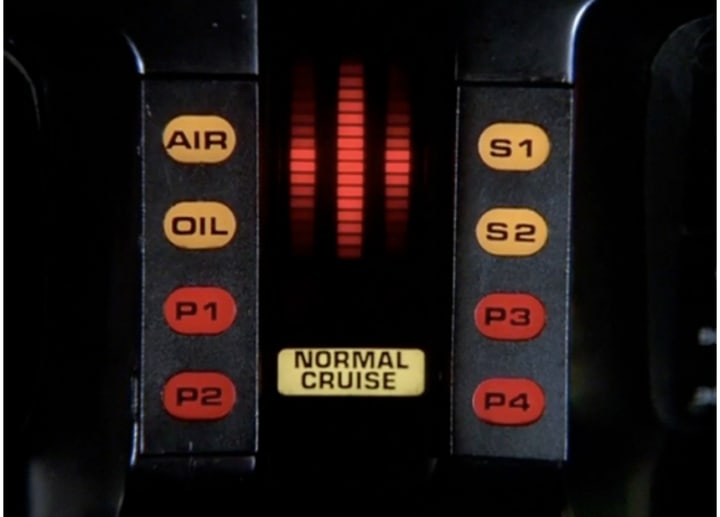
K.I.T.T. Console
War Games - W.O.P.R. & Joshua The Computer
“Shall we play a game?”
W.O.P.R. or War Operation Plan Response is one computer which even the most daring hacker would probably not want to mess around with or try to initiate a security breach. In director John Badham’s hit film, the WOPR is so advanced and powerful it could very well spell mankind’s doom and utter destruction.
Shall We Play A Game?
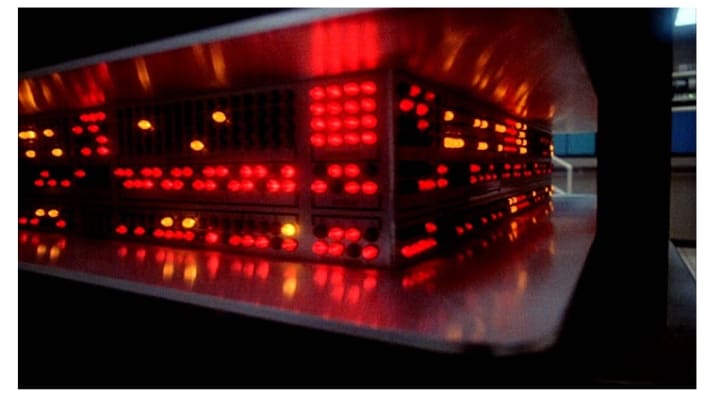
The W.O.P.R. = WAR OPERATION PLAN RESPONSE
Actors Matthew Broderick and Ally Sheedy play two high school kids who get mixed up hacking into a computer system which is responsible for half of the Earth’s nuclear arsenal. Talk about snooping around in an important computer. Co-star John Wood, who played Professor Falken, also provided Joshua’s eerie voice, a tribute to the character's deceased son.
About the Creator
Will Stape
Screenwriter, book author, and producer. Wrote for 'Star Trek: The Next Generation & Deep Space Nine,' and has created docudramas for cable TV and the web.

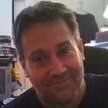




Comments
There are no comments for this story
Be the first to respond and start the conversation.